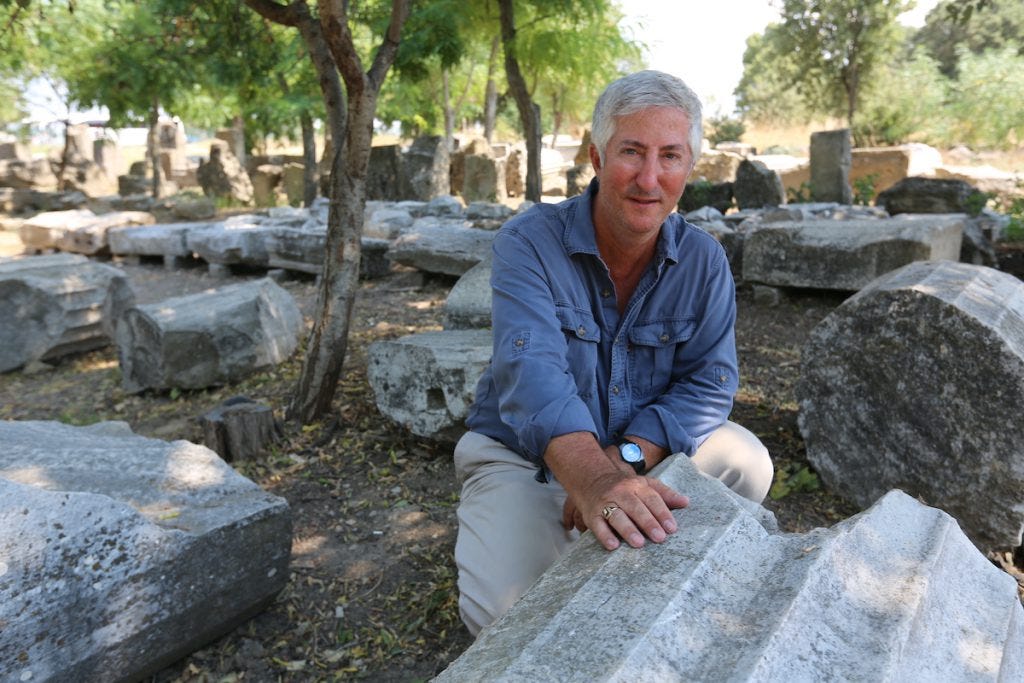The Late Bronze Age Mediterranean was a surprisingly interconnected place.
Rulers sent one another gifts, as well as diplomatic exchanges, and food aid in times of drought. Trade flourished, interrupted by the odd embargo, and military conflicts used disinformation for strategic gain.
It was globalized and cosmopolitan in a way that feels very familiar to us in 2024. And then something terrible happened that brought it all to an end.
Large empires and small kingdoms that had been flourishing for centuries all collapsed at around the same time. It was as though civilization itself had been wiped away.
What caused it? And could it happen to us?
I think you’d better give this a listen because the threats they faced are very similar to the disruptions plaguing us today.
I got interested in the Late Bronze Age collapse 4 or 5 years ago after my first trip to Greece. We went to the Peloponnese because I wanted to see the Lion Gate. It was startling to think that for the Greeks of classical Athens, the ruins of Mycenae and Tiryns were relics of a past so distant they were shrouded in mystery.
I wanted to know more, and so I reached out to a writer whose scholarly life is devoted to understanding this period and the lessons it might hold for us in 2024.
Eric Cline is professor of classics and anthropology at George Washington University. He’s the author of 1177 B.C: The Year Civilization Collapsed and After 1177 B.C: The Survival of Civilizations.
You can read more about him on his website, and follow him on Instagram, Facebook and Twitter.
We spoke about the globalized Bronze Age world, why some civilizations vanished and others thrived, and why future historians might look at 2020 in the same way we look at 1177 B.C.
Eric really brings it all to life, narrating ancient letters, unlocking shipwrecks and connecting the world of Homer to our own. He also reveals the fragility of modernity, something we’re all conscious of in a post-pandemic world.
These are the books we mentioned in the podcast:
You can listen to Personal Landscapes: Conversations on Books About Place on iTunes, Spotify, Stitcher, Podbean, Google Podcasts, Audible, PlayerFM, and TuneIn + Alexa.
Please subscribe, and rate the podcast or leave a review.
Your support is greatly appreciated.












